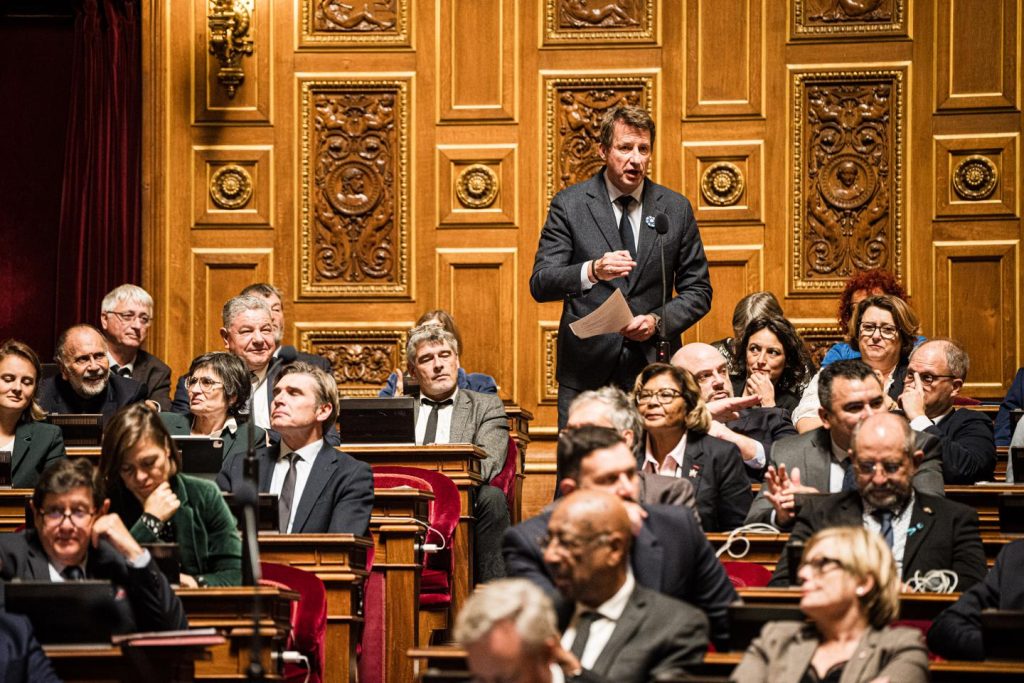In November 2024, Parisian Green senator Yannick Jadot spoke at the Senate in Paris. On March 21, the Communist group in the Senate, with the support of the rest of the Left and particularly the Republicans (LR) group, successfully removed the article of the law allowing the ratification of CETA, the free trade agreement between the European Union and Canada. This unlikely alliance between communists and the right was based on a shared history of skepticism towards free trade agreements and the EU. The move represented a rare convergence between right and left Senate groups opposing the Macron government, with the socialists, communists, and ecologists now facing a broader majority extending from LR to Macronists.
The Left, consisting of 64 socialists, 18 communists, and 16 ecologists, now faces not just the right-leaning Senate majority but a larger coalition aligned with the government spanning LR to Macronists. The socialist group, now the main opposition to the government in the Senate, enjoys a more straightforward position of opposing both the government majority and the Senate majority. The return to a traditional left-right debate reduces the chances of political maneuvers for the left, with the President of the Green group, Guillaume Gontard, considering potential opportunities for the left on issues such as fiscal justice and taxing super-dividends.
The fluid relations among the three left-wing groups and their respective presidents have been evident in their collective opposition to pension reform in 2023. Absence of any “insubordinate” members in the Luxembourg Palace has facilitated these convergences, as the socialist group largely opposes supporters of Jean-Luc Mélenchon. However, the absence of established exchange times between left-wing senators is notable, with only the annual end-of-session gathering, organized by the socialist group, serving as a formal opportunity for communication. Despite the lack of institutionalized exchanges, the groups find informal ways to coordinate and work together on common causes.
The Left remains cautious in its approach, with the Communist group showing more hesitance towards cooperation. The potential exists for alliances on specific issues such as justice reform and the influence of less-right-leaning ministers seeking support from left-wing groups. The fluid nature of relations between the three left-wing groups allows for collaboration on common objectives, though some express surprise at the absence of structured communication channels between the senators. The annual end-of-session gathering remains the main formal opportunity for discussions between members of different left-wing groups.
In conclusion, the dynamics within the Left in the Senate reflect a shifting political landscape marked by unexpected alliances and changing power dynamics. The removal of the article allowing ratification of CETA demonstrates the complexities of navigating political alliances in the context of broader ideological divides. While the Left is positioned as the primary opposition force in the Senate, internal dynamics and cautious approaches to collaboration highlight the challenges of forging a cohesive and united front. As the political environment continues to evolve, the Left faces both opportunities and challenges in effectively opposing the government and influencing policy decisions.


